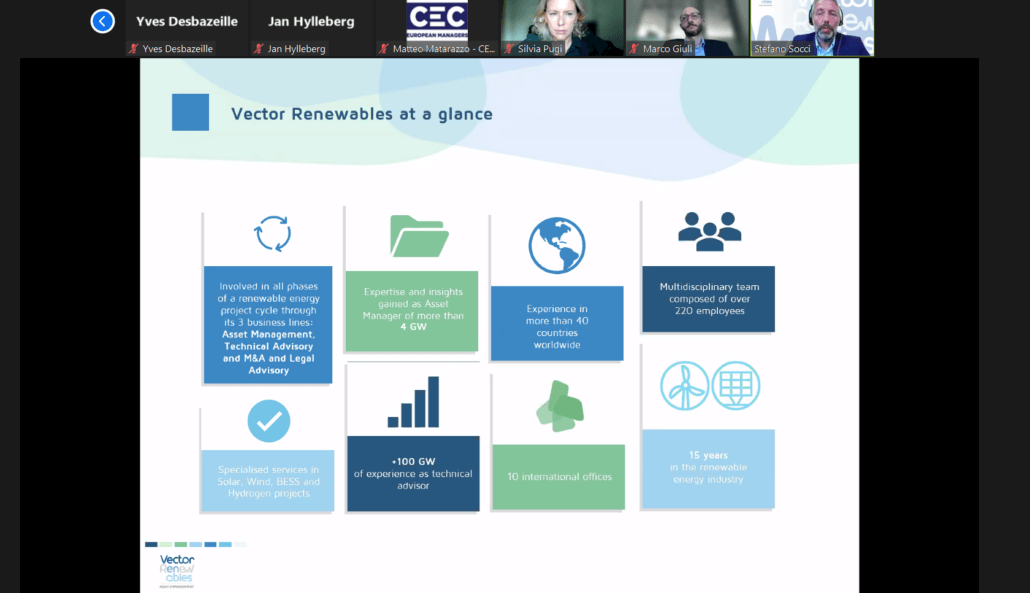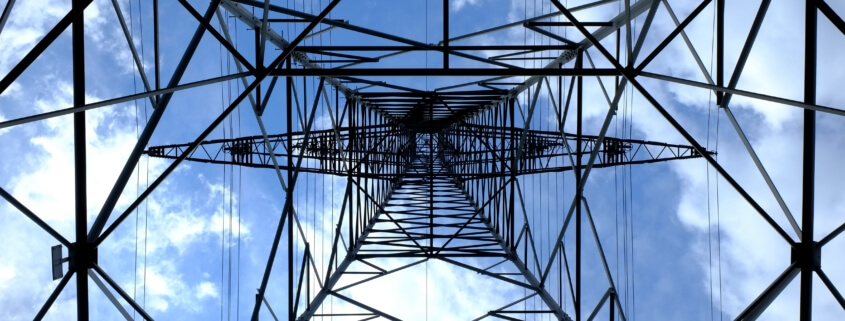A new energy horizon for Europe, technological opportunities to support the transition
CEC’s Working group on Smart change held its first webinar month. Moderated by Marco Vezzani, the event gathered experts and researchers to discuss the current pathways in the areas of hydrogen, nuclear, and renewable energies.
Held on June 13th, 2022, CEC’s first webinar organized in the context of the Smart Change Working Group activities took place online. The recent geopolitical events and the climate crisis urge managers to become more and more aware of the consequences of Europe’s energy policies. These events are slowing down the progresses to achieve the green transition which concern managers greatly.
Giving managers tools to rethink society
Managers, because of their technical expertise and responsibilities should be able to identify the most effective policies and procedures but also to differentiate the available solutions for serving the society. The webinar allowed experts and attendees to exchange on ongoing issues and challenges in the areas of renewables energies, nuclear and hydrogen. The speakers presented current trends and evolution in their respective sector.
Marco Giuli, Scientific Advisor at the Istituto Affari Internazionali, discussed the current energy security predicament in Europe, also in the light of the current war in Ukraine, and gave insightful comments regarding the current geopolitical situation. “The global energy system was under stress even before Putin decided to attack Ukraine. But even if political crisis did not determine the origin of the tight market we have seen since last year, it later became an important driving factor in the energy markets perturbation” explained Mr. Giuli.
The European Institutions are aiming to reach energy independence and the process has been accelerated since the war in Ukraine started. As our speakers underlined, new policy packages were created such as REPower EU. This plan aims to achieve energy independence from Russia by 2027. It focuses mainly on renewable energy. For instance, the deployment of wind and solar system to replace Russian gas.
How can we reach the climate objectives?
Throughout the discussion, attendees were able to understand the new trends in the renewable and nuclear energies sector: “If we are to achieve our climate objectives, we need to invest into our renewable energy capacities and can’t wait for possible future technologies. The market opportunities are enormous” said Jan Hylleberg from Green Power Denmark.
In his presentation, Jan Hylleberg detailed the alternatives for energy production and consumption in Denmark. The discussion notably focused on the global energy supply chain and the urgency to switch it to a regional supply chain approach as soon as possible.

Mr. Desbazeilles, Director General of NuclearEurope, introduced a description of the current EU nuclear energy panorama, detailing the way nuclear energy can contribute to the objectives of implementing the decarbonization of our economy and reinforcing our energy supply security. However, some dimensions of the nuclear process – like for instance the disposal of waste – remain problematic, both from a purely environmental and an “intergenerational” perspective.
Panelists agreed that the war in Ukraine accelerated the need for common policies and especially the need for common requirement and processes across Europe to facilitate the energy transition. Among the possible alternatives available in the renewable energy sector, “green” hydrogen could represent a viable solution, contributing at the same time to the decarbonization of many industrial processes. But, as explained by Stefano Socci, Hydrogen strategy and origination manager at Vector Renewables: “the full implementation of a green hydrogen economy still faces challenges in terms of technological readiness, overall system efficiency, security and financial costs.”
Silvia Pugi, head of Corporate social responsibility at ManagerItalia, concluded: “It will be challenging to find a balance between energy security and fighting climate change. The scarcity of some materials will present issues for Europe. But some long-term alternative can be found with for instance with hydrogen and renewables energies. Energy transition is a milestone to secure a safe and sustainable Europe.”
*This webinar is the first of a series of four webinars on the thematic of smart change and how it will impact the managerial perspectives across Europe. The next webinar is planned for fall 2022, focusing on what new soft skills will be required from managers to allow them to drive change and support the multiple transitions
Read Silvia Pugi’s conclusions
Find out more on the topic of Hydrogen and Nuclear Energy




